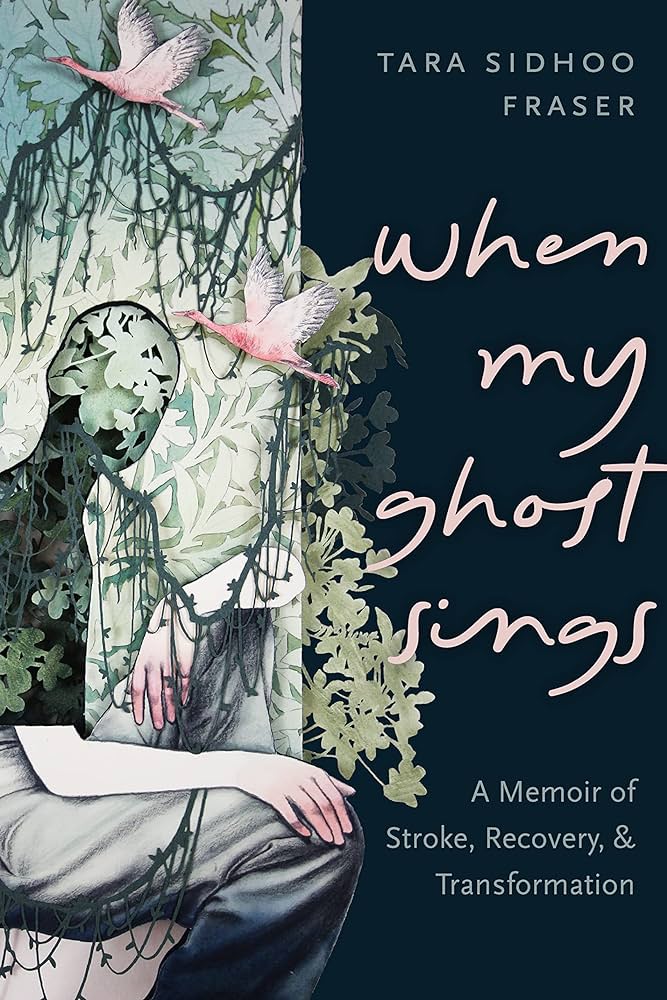When My Ghost Sings
by Tara Sidhoo Fraser
Arsenal Pulp Press
184 pages
$23
Memoir, by definition, is a genre of literature based on memory. So, what happens when a writer’s memories, their primary source material, are erased?
In When My Ghost Sings, writer Tara Sidhoo Fraser does the seemingly impossible by telling the harrowing story of the stroke that took away most of her memory at age thirty-two. The book focuses on the aftermath of the stroke, caused by a malformation on the left side of her brain, but it also intermingles fragments of memory of Sidhoo Fraser’s former self, whom she calls Ghost.
As Sidhoo Fraser starts her slow recovery, she faces the new reality of being inside a body, and living a life, she cannot recognize. This sudden split from her sense of self is described in vivid passages as an excruciating fight between the memories that are allowed to inform Sidhoo Fraser’s daily life, those of Ghost, or those of the new person who has replaced her.
Lyrical and elusive, When My Ghost Sings is a book that demands trust from the reader as the non-linear narrative evokes the dislocation Sidhoo Fraser felt just before and in the many months following her illness. She balances this feeling of confusion and disorientation by rooting her writing in a rich sensorial language that conveys the physical sensation of being a stranger in her body: Ghost constantly “strangles” her, “kicks” her ribcage, or “sings” in her ears, but also, certain memories seem to be etched in the cells of her body or the marrow inside her bones, echoes of past dancer aches or childhood accidents faintly emerging from within.
As she is recovering from severe brain damage, the world Sidhoo Fraser describes is also filtered through the blurry lens of her reawakening senses: the damp streets of Seattle, the dark winter nights of Vancouver, or the nondescript coldness of the hospital as she is rushed in for surgery. Everything is enhanced or diminished through the effects of her physical and psychic pain.
As the writer struggles to find peace inside her mind and her body, she also tells the story of transformation of her partner, Jude, who starts hormone therapy several months into their relationship. It is a striking parallel that adds rich layers to the exploration of identity and how it is connected to the body. Having been forcefully split from the memory of her body, Sidhoo Fraser shows the agency that it takes for some people to inhabit their own bodies.
If it takes a few chapters to fall into Sidhoo Fraser’s rhythm, the narrative becomes increasingly gripping the further the reader progresses into the writer’s recovery and understanding of her condition. Part meditation on memory, part love story, When My Ghost Sings is a quiet celebration of perseverance, hope, and self-forgiveness.














